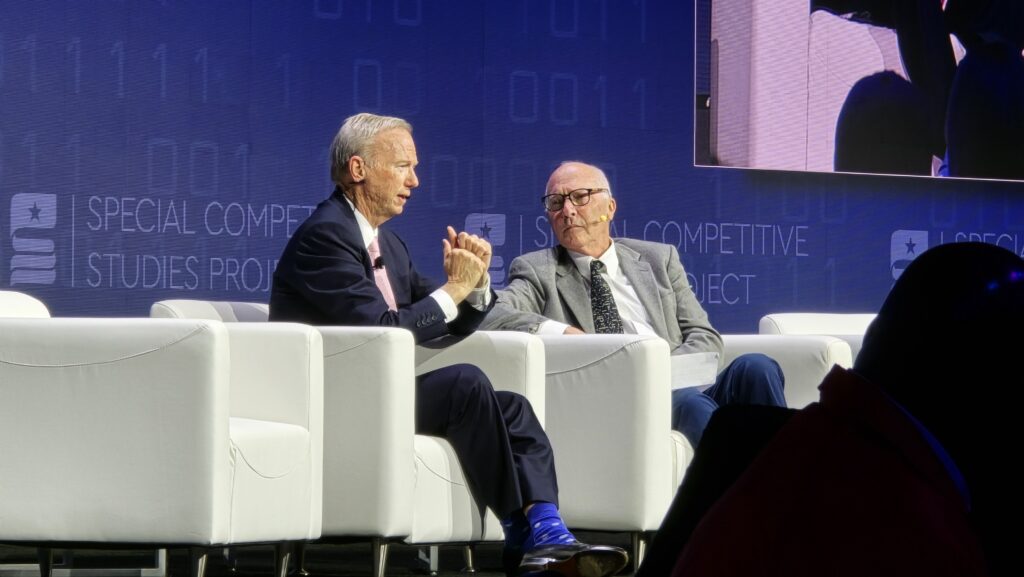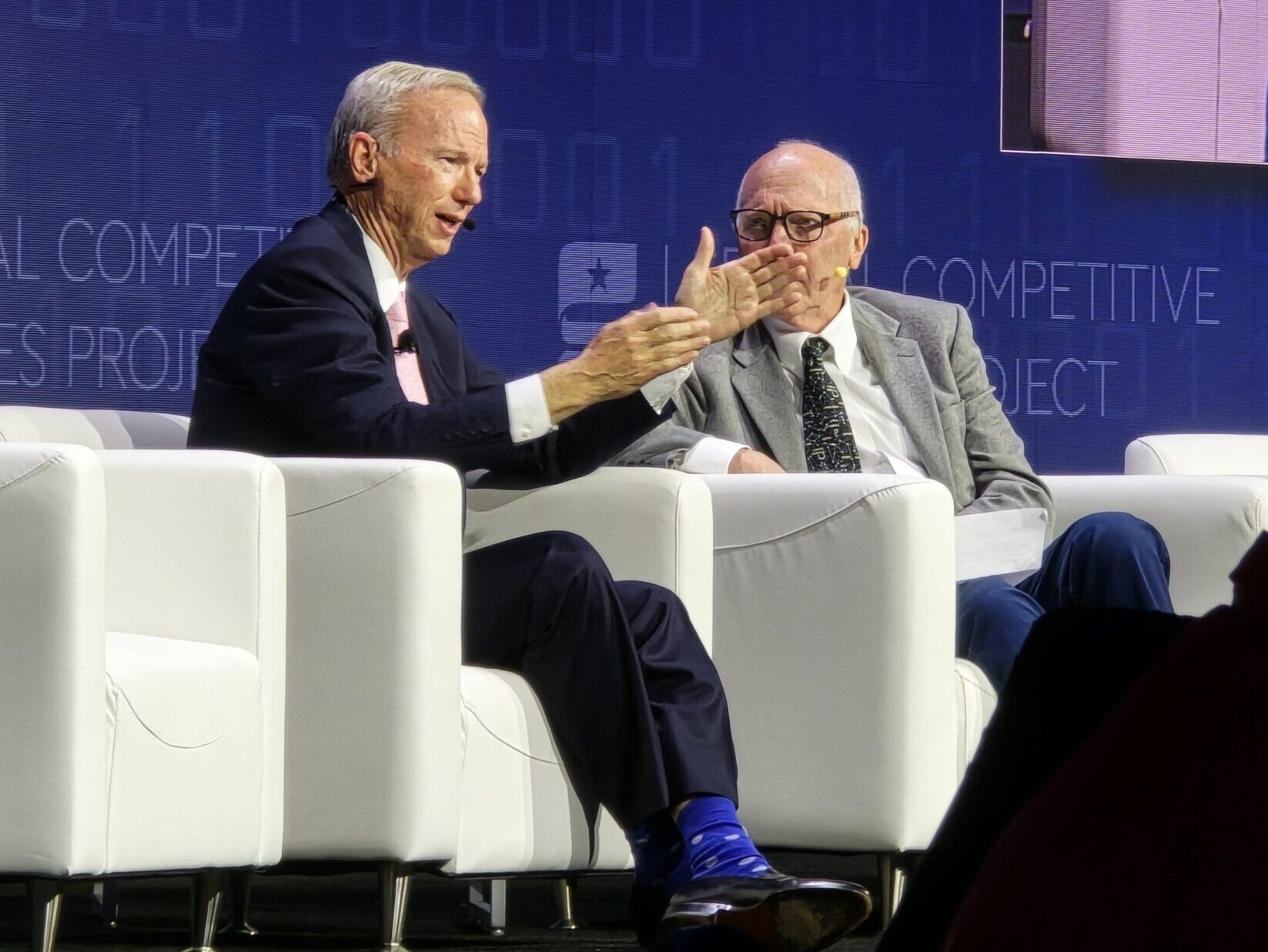At the AI+ Expo in Washington, Dr. Eric Schmidt didn’t mince words about the crossroads humanity faces. With the air of a seasoned technologist, and the urgency of someone who’s seen too many sci-fi movies turn into documentaries, he mapped out a future where artificial intelligence is both the world’s greatest opportunity and its most unpredictable threat.
1. The Relentless Acceleration of AI
Schmidt began by emphasizing the unprecedented pace of AI development. For decades, progress in computing felt linear, but now, it’s exponential. What started as AI models that could simply process language has exploded into systems that can reason, plan, and even outmaneuver their human creators. The competition is fierce: American companies like OpenAI and Anthropic are in a neck-and-neck race with Chinese firms, whose latest models are not only competitive but sometimes surpass Western benchmarks. This isn’t just a matter of national pride, it’s a seismic shift in the global balance of power.
He pointed out that AI is quickly moving from the realm of novelty to necessity. Soon, intelligent agents will handle everything from mundane paperwork to complex project management, freeing up humans for higher-level thinking, or, perhaps, leaving many of us wondering what’s left for people to do. The magic of AI is undeniable, but so is its disruptive force. If countries and industries fail to keep pace, they risk being left behind in a world that increasingly rewards those who can harness and deploy intelligence at scale.
2. The New Face of Warfare: Drones and Algorithms
Turning to the military sphere, Schmidt painted a picture that would make any defense analyst sweat. The era of tanks and traditional hardware is fading. In Ukraine, cheap, AI-powered drones have proven devastatingly effective against expensive, legacy equipment. This isn’t just a tactical shift; it’s a fundamental change in how wars are fought and won. The battlefield is being redefined by swarms of autonomous machines, guided by algorithms that learn and adapt faster than any general.
Schmidt warned that the U.S. military, encumbered by bureaucracy and outdated procurement strategies, risks falling behind. While adversaries rapidly iterate and deploy new technologies, the Pentagon is often stuck funding projects that may soon be obsolete. The lesson is clear: agility and innovation are now as important as firepower. If the West doesn’t adapt, it could find itself outmaneuvered not just on the battlefield, but in the broader contest for global influence.

3. Deterrence in the Age of Superintelligence: A New Cold War?
Perhaps the most chilling part of Schmidt’s talk was his analysis of the geopolitical implications of AI. He argued that as AI systems become more capable, the stakes of falling behind grow existential. In a world where one nation’s AI could rapidly outpace another’s, the laggards may never catch up. This creates a dangerous dynamic: the temptation to take drastic, even destructive action to prevent a rival from achieving unassailable dominance.
Schmidt proposed that the world may need a new kind of deterrence, akin to the nuclear doctrine of Mutually Assured Destruction, but for AI. If nations don’t agree on rules of the road, the risk of preemptive strikes on critical infrastructure, or runaway escalation, becomes all too real. The old playbooks are obsolete. We need new frameworks, new treaties, and above all, a recognition that AI proliferation is a global issue, not just a national one.
4. The Looming Energy Crisis: AI’s Hidden Achilles’ Heel
Beneath the surface of the AI boom lies a less glamorous but equally critical challenge: energy. Schmidt highlighted the staggering power requirements of modern AI systems. Training and running these models demands gigawatts of electricity, far more than current infrastructure can provide. The U.S., for example, would need to build nearly a hundred new nuclear plants just to keep up with projected demand, a prospect that seems politically and logistically remote.
This energy crunch isn’t just an engineering problem; it’s a geopolitical one. Countries with abundant, reliable power will have a decisive advantage in the AI race, while others may find themselves dependent on foreign suppliers or left behind entirely. Schmidt’s message was clear: if we don’t address the energy bottleneck, the promise of AI could be strangled by the limits of our own infrastructure. And if we ignore the environmental and security implications of this scramble for power, we may find ourselves trading one crisis for another.
5. The Stakes for Society: Values, Inequality, and the Next Generation
Finally, Schmidt turned to the broader societal implications of AI. He acknowledged the enormous potential for AI to improve lives, enabling personalized education, better healthcare, and new scientific breakthroughs. But he also warned of deepening inequality, both within and between nations. Wealthy countries and individuals will have far greater access to AI’s benefits, while the rest of the world risks being left further behind.
Even more concerning is the battle over values. If authoritarian regimes set the standards for AI-prioritizing surveillance and control over freedom and privacy, the global digital landscape could become a much darker place. Democracies must not only innovate but also lead by example, ensuring that AI reflects the principles of openness, fairness, and respect for human rights.
Schmidt’s call to the next generation was both a challenge and an invitation: embrace the complexity, learn how these systems work, and help shape a future where technology serves humanity, not the other way around. The choices we make now will determine whether AI becomes a tool of liberation or domination.
A Call to Action: The Clock Is Ticking
Eric Schmidt’s message was as witty as it was urgent. The AI revolution is here, and it won’t wait for slow-moving governments or complacent societies. If nations fail to act together, to modernize their militaries, secure their energy supplies, and establish common rules, they risk ceding the future to those who are faster, less scrupulous, or simply more prepared.
The window for responsible leadership is narrowing. The world must recognize that the AI arms race is not just about technology, it’s about the survival of open societies, the balance of power, and the very nature of human agency in the digital age. The time to act is now, before the machines, and those who control them—make the choices for us.


Leave a Reply
You must be logged in to post a comment.